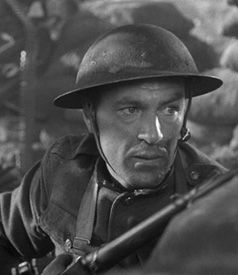
In John Farmer's book: "The Ground Truth: The Story Behind America's Defense on 9/11," the author builds the inescapably convincing case that the official version... is almost entirely untrue...
The 9/11 Commission now tells us that the official version of 9/11 was based on false testimony and documents and is almost entirely untrue. The details of this massive cover-up are carefully outlined in a book by John Farmer, who was the Senior Counsel for the 9/11 Commission.
Farmer, Dean of Rutger Universities' School of Law and former Attorney General of New Jersey, was responsible for drafting the original flawed 9/11 report.
Does Farmer have cooperation and agreement from other members of the Commission? Yes. Did they say Bush ordered 9/11? No. Do they say that the 9/11 Commission was lied to by the FBI, CIA, Whitehouse and NORAD? Yes. Is there full documentary proof of this? Yes.
Farmer states..."at some level of the government, at some point in time there was an agreement not to tell the truth about what happened... I was shocked at how different the truth was from the way it was described. The [Norad air defense] tapes told a radically different story from what had been told to us and the public for two years. This is not spin."
The 9/11 Commission head, Thomas Kean, was the Republican governor of New Jersey. He had the following to say... "We to this day don't know why NORAD [the North American Aerospace Command] told us what they told us, it was just so far from the truth. . . " When Bush's own handpicked commission failed to go along with the cover up and requested a criminal investigation, why was nothing done?
9/11 Commission member and former US Senator, Bob Kerrey, says, "No one is more qualified to write the definitive book about the tragedy of 9/11 than Attorney John Farmer. Fortunately, he has done so. Even more fortunately the language is clear, alive and instructive for anyone who wants to make certain this never happens again."
With the only "official" 9/11 report now totally false, where do we go from here? Who is hurt by these lies? The families of the victims of 9/11 have fought, for years, to get to the truth.
For years, our government has hidden behind lies and secrecy to deny them closure.
In 2006, The Washington Post reported..."Suspicion of wrongdoing ran so deep that the 10-member commission, in a secret meeting at the end of its tenure in summer 2004, debated referring the matter to the Justice Department for criminal investigation, according to several commission sources. Staff members and some commissioners thought that e-mails and other evidence provided enough probable cause to believe that military and aviation officials violated the law by making false statements to Congress and to the commission..."
What does Attorney Farmer's book tell us? Farmer offers no solutions, only a total and full rejection of what was told and his own his own ideas concerning the total failure of honesty on the part of the government, a government with something to hide.
Farmer never tells us what. Nobody could keep a job in the public sector speaking out more than Farmer has. What were Farmer's omissions? There are some. Now that we know that intelligence given the 9/11 Commission wasn't just lies from our own government but based on testimony coerced through torture from informants forced to back up a cover story now proven false, a pattern emerges.
We know that, immediately after 9/11, many more potential suspects and informants were flown directly to Saudi Arabia by Presidential order than were ever detained and questioned. We will never know what they could have said. Their testimony would have been vital to any real investigation were they not put beyond the reach of even Congress and the FBI.
Putting aside all other questions of recent evidence of CIA involvement with bin Laden prior to 9/11 or altered physical evidence involving the Pentagon attack, any failure to call to account the systematic perjury committed by dozens of top government officials, now exposed as a certainty is an offense to every American.
What do we know? We know the conjecture about 9/11 still stands but for certain, we know we were lied to, not in a minor way, but systematically as part of a plot covering up government involvement at nearly every level, perhaps gross negligence, perhaps something with darker intent.
Are we willing to live with another lie to go with the Warren Report, Iran Contra and so many others? Has the sacrifice of thousands more Ameri cans, killed, wounded or irreparably damaged by a war knowingly built on the same lies from the same liars who misled the 9/11 Commission pushed us beyond willingness to confront the truth?
Have we yet found where the lies have begun and ended? There is no evidence of this, only evidence to the contrary. The lies live on and the truth will never be sought. The courage for that task has not been found.
Can anyone call themselves an American if they don't demand, even with the last drop of their blood, that the truth be found?
How long have we watered the Tree of Deceit with the blood of patriots?
Gordon Duff is a Marine combat veteran and a regular contributor to Veterans Today. He specializes in political and social issues. You can see a large collection of Gordon's published articles at this link: VeteransToday.com.
He is an outspoken advocate for veterans and his powerful words have brought about change. Gordon is a lifelong PTSD sufferer from his war experiences and he is empathetic to the plight of today's veterans also suffering from Post Traumatic Stress Disorder. We greatly appreciate the opportunity to feature Gordon's timely and critical reports on Salem-News.com, a news organization staffed by a number of veterans, particularly former U.S. Marines.
You can send Gordon Duff an email at this address: Gpduf@aol.com








